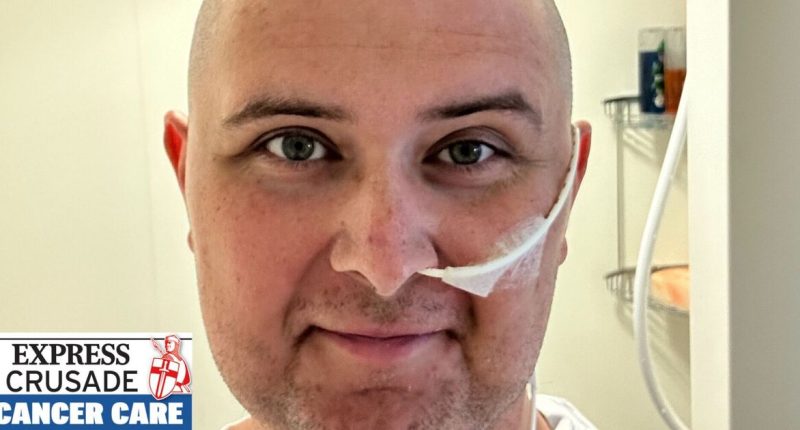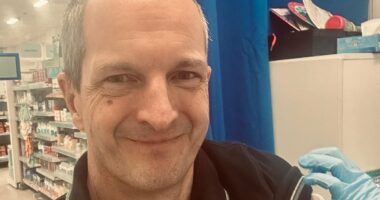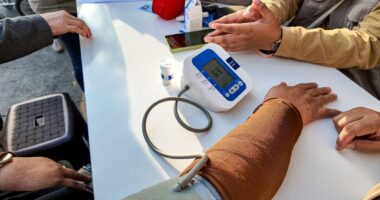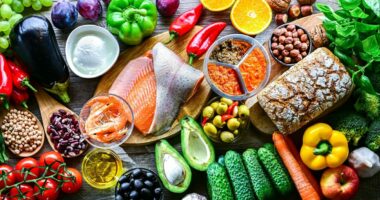Share this @internewscast.com
Being told you have cancer is awful, and being a patient is hard. For me, getting back out there and trying to reclaim some normality was the hardest part of all. I was diagnosed with blood cancer in late 2021. My first year of treatment failed, so I had a stem cell transplant in May 2023. The three years of chemotherapy, hospital visits, and fatigue were extremely tough, but getting back out into something approaching a “normal” life has been much harder. When I was diagnosed, I knew that my life would look very different.
The boredom of hospital stays as an inpatient, the monotony of regular hospital, the recognition that going out into crowded places was too dangerous given my weakened immune system – these became my new normal during treatment. My relapse in early 2023 was devastating, as I had just started to piece my life back together. Having been a patient for many months, then given a tantalising glimpse of normality only to have it snatched away again, was brutal.
While going through a stem cell transplant was tough, the care I received was exceptional, and the nurses and doctors did everything they could to keep me as comfortable as possible. It was as I started to get stronger, little by little, that everything became harder.
On the one hand, I was incredibly impatient to get back to “normal” and felt angry at myself for my mind being ready while my body wasn’t. On the other hand, I felt terrified about going back out into the world again, in case I picked up a virus or overdid it and pushed myself into a fatigue-induced setback.
The fear of relapse hung over me like a spectre – I’d already relapsed once before, albeit not after a stem cell transplant, and the idea of having my freedom taken away from me again, messy and confusing though that freedom was, was almost impossible to bear.
Friends and family wanted to see me (and I, them!), and I wanted to get back to work so I could help pay the bills, but I didn’t know how I was going to feel from one day to the next. Some days I would feel energised enough for an hour’s walk, and others I felt like I’d never leave my bed again.
I felt like an awful friend and an awful partner to my then-fiancée, who frequently had to nurse me despite having to hold down her job to pay the bills.
When I was able to work, I made frequent mistakes due to “chemo brain,” and I felt guilty for not having a clear answer for people who asked when I was free for a visit and frustrated that I couldn’t find the same rhythm or consistency that comes with being a patient.
At times, I lost faith that I would be able to cope. Despite the support of my partner, friends, and family, I felt very alone.
I was referred to a clinical therapist, and the sessions helped me to process what I had been through, the threat of relapsing again, and how to manage living with anxiety.
I also joined a weekly group session for other stem cell transplant patients, and hearing the shared experiences and anxieties helped me to realise that I wasn’t alone in what I’d been through and that there were others out there who understood and sympathised.
Little by little, I started to acclimatise, gain more confidence at work, and do tasks more competently. I began to find I had more consistent energy and became better at recognising when a period of fatigue was about to kick in.
If it hadn’t been for my access to therapy and post-transplant support, I would have found it nearly impossible to get back to my old life again. I strongly advocate for the Daily Express’s campaign for better care and mental health support for cancer patients.
As time wore on, I became more and more like my old self. Now, two years after my transplant, I feel like I’m mostly back to something approaching normal. I’m back at work full time, I hiked a mountain, and I even got married.
I’m by no means perfect – I still go to therapy, and know that there’s still more to explore, but I feel so much better equipped thanks to the support I got when I needed it.















